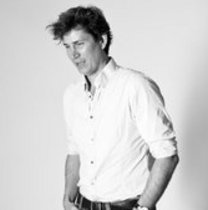
Hagen Schulz-Forberg is Associate Professor for Global and European History at Aarhus University. He teaches and writes on the global and European history of the contemporary period with a focus on conceptual history in order to tackle the nexus of power, knowledge and legitimacy. He concentrates on the history of Europe and European integration and on the global networks of economic thinkers, their concepts of the social, and their role as normative actors throughout the twentieth century and until today. He studied history, philosophy and literature at Freie Universität Berlin and graduated in modern European history at St. Antony‟s College, Oxford University, before moving to the European University Institute in Florence to write his PhD at the Department of History and Civilization. Before joining Aarhus University in 2007, he was Research Fellow at the European University Institute from 2004 to 2007. He was part of the coordinating team for a large European research project financed by the 6th Framework Programme of the European Commission. Ever since then, he has been involved in the coordination and leadership of international research projects. Recently, he coordinated two projects on conceptual history: 1) Global Translations of the Social and the Economic in Europe and Asia (2007-2011) and 2) Zero Hours: Conceptual Insecurities and New Beginnings in the Twentieth Century from a Global Perspective. Hagen is fluent in German, English, Italian, and French, and reads on a professional level Spanish, Danish, Norwegian and Swedish. Among other research groups, he is member of the Working Group on the Historical Semantics of the Twentieth Century, coordinated at the Centre for Contemporary History, Potsdam, he is board member of the journals New Global Studies and Comparativ as well as member of the steering committee of the Global Studies Consortium and the European Network for Universal and Global History (ENIUGH). He acts as referee to leading international journals such as Global Society or the Journal of Language and Politics. His latest monograph (2010), co-authored with Bo Stråth, The Political History of European Integration. The Hypocrisy of Democracy-through-market, London: Routledge, was nominated for the European Book Prize 2011. Further publications relevant for this project from 2011 include „Before Integration: Human Rights and Post-War Europe‟, in: Spiering, M. & Wintle, M. (eds.): European Identity and the Second World War, Basingstoke: Palgrave Macmillan, 37-54, and “Critique, Time and Space: The Role of Concepts and History for Global Governance‟, in: Joerges, C. & Ralli, T. (eds.): After Globalization – New Patterns of Conflict, Oslo: RECON Reports, 395-408.
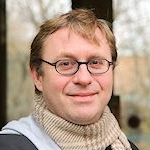
Dieter Plehwe is a senior research fellow in the department “Inequality and Social Policy” at the Berlin Social Science Research Center (WZB). He studied political science, economics and history in Marburg and New York and received his Ph.D. in Political Science from Philipps-University Marburg in 1997. He taught political Sociology and International Political Economy courses at Philipps University Marburg, Yale University (2002-3), Free University Berlin, Vienna University (2008), and University of Kassel. He spent one year as a guest fellow at New York University’s International Center for Advanced Studies, participating in a project on the authority of knowledge in a global age (2004/5). His research interests are related to the larger question of the history and transformation of globalized capitalism, including regional integration in North America and Western Europe, the history and varieties of neoliberalism, transnational expert, consulting and lobby/advocacy networks, and the austerity related makeover of the welfare state. Plehwe serves as an editor of Critical Policy Studies. He is currently working on the global revitalization of entrepreneurship from the 1970s onward, and on the contemporary social co-production of austerity knowledge with a focus on European think tank networks.
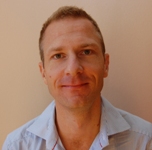
My academic interests address European history in the twentieth century, exploring how political languages and practices are constructed and disseminated in various national and transnational settings. In my current research, I investigate how scholars and politicians in Europe and the Western World have shaped and reshaped the idea of the 'sovereign consumer' throughout the Twentieth Century. In a related project, I analyze how liberalism was reconstructed as a political ideology in Western Europe from 1945 until 1970. In my PhD, I explored patterns of political and cultural thought in Germany from the 1920s until the present, concentrating on the work of the German historian Reinhart Koselleck. I have moreover edited volumes about the memory of ‘68’ in Denmark, twentieth century German intellectuals, the challenge posed to Danish Universities by National Socialism in the 1930s and 1940s, and critical theories of crisis in Europe. My recent publications includes "Crisis and the Consumer: Reconstructions of Liberalism in Twentieth Century European Political Thought," in Niklas Olsen & Poul Fritz Kjær (eds.): Critical Theories of Crisis in Europe: From Weimar to the Euro, Rowan and Littlefield, 69-86, 2016; "Velfærdsstatens krise og neoliberalismens indtog i Danmark i 1970erne," in Slagmark: Tidsskrift for Idéhistorie; "From Choice to Welfare: The Concept of the Consumer in the Chicago School," Modern Intellectual History (in press).
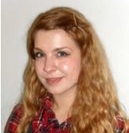
Roxana Breazu holds an MA degree in International Studies from Aarhus University. In her final thesis she carried out a study on the conceptual history of labour and property in different religious semantic settings. She graduated at the Academy of Economic Studies in Bucharest, Faculty of International Economic Relations, with a thesis in Geopolitics entitled Geopolitical and Geo-economic Aspects in Latin America. With a wish to deepen her knowledge in the fields of both history and economics she has taken a one year scholarship at the Università degli Studi di Trieste in Italy where she followed courses pertaining to both the Faculty of Economics and the Faculty of Humanities. Roxana is fluent in English, Romanian and Italian as well as Danish.
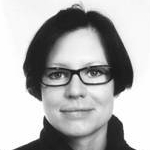
Katja Naumann is research fellow at the Centre for the History and Culture of East Central Europe at Leipzig University. In parallel she is lecturer at the Global and European Studies Institute at Leipzig University, developing and teaching the global history section of the Erasmus Mundus Program Global Studies – a European perspective. She holds a PhD in cultural history and global studies. In her dissertation she analyzed the emergence of world history in the United States. Her dissertation is entitled: Laboratories for Conceptual Change: World History at Columbia University, the University of Chicago, and Harvard University, 1918–1968. Her fields of expertise are the history of internationalism and International Organizations understood as one aspect of processes of globalization, the development of historiography and university systems, as well as 20th century United States history, in particular the course of historical education and research. She has been member of two international research projects: 1) Representations of the Past: The Writing of National Histories in Europe (European Science Foundation), and 2) The Place of the 18th Century in Global History (German Research Council). She won stipends from the Special Collection Research Center, University of Chicago, the European Science Foundation and the German Research Council Priority Program called Science, Politics and Society: Germany in International Contexts in the late 19th and 20th centuries. As guest researcher she worked at the Centre National de la Recherche Scientifique, Paris, and the Orfalea Center for Global & International Studies at the University of California, Santa Barbara. Aside her research she edits the online-forum geschichte.transnational and works in the editorial board of the journal Comparativ. A Journal of Global History and Comparative Studies and H-Soz-u-Kult. She is board member of the European Network in Universal and Global History (ENIUGH) and founding member of the Network of World and Global History Association. Further she established the workshop series Female Spirit and Academia: Empowerment the other way at the Research Academy Leipzig.
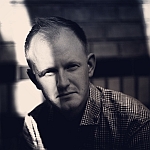
Søren Friis is a PhD candidate at the School of Culture and Society, Aarhus University, from where he also holds an MA in International Studies. His PhD project critically examines the relationship between security and development as political concepts in Scandinavian foreign policies. His research relating to Towards Good Society has focused on transnational networks of academic and civil society actors during the interwar decades. Søren Friis has published on the "security-development nexus" in such journals as H-Soz-u-Kult and temp. He is the co-editor of a textbook on the European Union (Europa i Forandring, Hans Reitzel, 2012) and co-author of a chapter on the conceptual history of development in the forthcoming Zero Hours 2 (Hagen Schulz-Forberg, ed., PIE Peter Lang). He teaches international and global history at Aarhus University and is a former visiting scholar at Uppsala University.

Jacob graduated from the University of Copenhagen in 2014, receiving an MA in History with distinguished performance for a thesis on American anarcho-capitalism and its entanglements with the New Left. At Aarhus University, he is writing a dissertation, tentatively titled "Reimagining Government," on the postwar emergence of rational choice theory as an analytical and evaluative principle for justifying as well as delegitimizing governmental processes.

Federico Giona holds a PhD in Political History from IMT, School for Advanced Studies Lucca. In addition, he obtained the “Doctor Europaeus” degree. In his dissertation, entitled Think Tanks and International Affairs during the Interwar Period: Ispi (Institute for Studies in International Politics) between foreign policy and public opinion (1919-1943), he analyzed the emergence of the first Italian think tank as a meaningful case study in order to better comprehend two different topics even if intertwined: on one hand to examine what the origins of think tanks in international politics were and what their role was, on the other hand to shed light on the relationship between Ispi and Italian foreign policy. Federico's project is placed at the crossroads between the history of the Italian foreign policy (especially Fascist foreign policy), the history of think tanks in international politics, and the analysis of the birth of a new elite of specialists in foreign affairs. He is particularly interested in transnational movements in 20th century Europe, the role of think tanks and the relationship between nationalism and internationalism. He won the “Enrico Serra” prize from the Nuova Antologia foundation, Florence, for his master thesis “Per una storia dell’Istituto per gli Studi di Politica Internazionale (1934-1943). Among his recent publications are the monograph “Ispi, primo think tank italiano di politica internazionale” «Quaderni della Fondazione Salvatorelli», Aracne, n.15, Gennaio 2014 as well as “L’Ispi tra storia e politica”, «Nuova Antologia», 2015, vol.614.
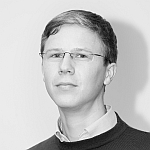
As of October 2014 Arne Käthner is a PhD candidate at the Bielefeld Graduate School in History and Sociology (BGHS) at Bielefeld University. He holds a B.A. in Social Sciences and English Studies from Erfurt University and an M.A. in International Studies from Århus University. From February till June 2015 he has been a Visiting PhD at Århus University and has been working as a research assistant for the International Studies program. Arne Käthner is a scholarship holder of the German Academic Scholarship Foundation. In his project he takes a close look at the transnational deliberations and conceptual struggles among neoliberal proponents on what concepts were to constitute the building blocks of a future German society – and how these were in turn publicly promulgated after the Second World War. The project will especially focus on the internal debates within the Mont Pèlerin Society (MPS) and the Aktionsgemeinschaft Soziale Marktwirtschaft (ASM) during the first two postwar decades.
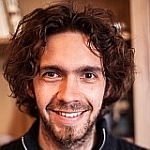
Martin Beddeleem is a visiting scholar at Aarhus University and a Ph.D. candidate at the Université de Montréal in Canada. His research deals with the intellectual genesis of neoliberalism examined through the prism of its epistemology and philosophy of science. It questions the development of its arguments regarding the production and diffusion of knowledge, guided by the intuition that building and reaching a common epistemological stance was crucial for the development of early neoliberalism, at a moment when the discourses of a liberal science and a science of liberalism intertwined. His project seeks a wide approach to the puzzle of the transformation of liberalism from the 1930s on as it entails both theoretical and sociological aspects, as neoliberalism was built, untypically, on a dialogue between thinkers from various national and academic traditions